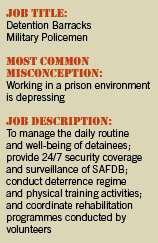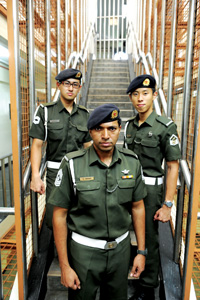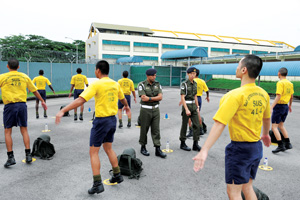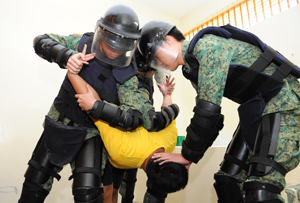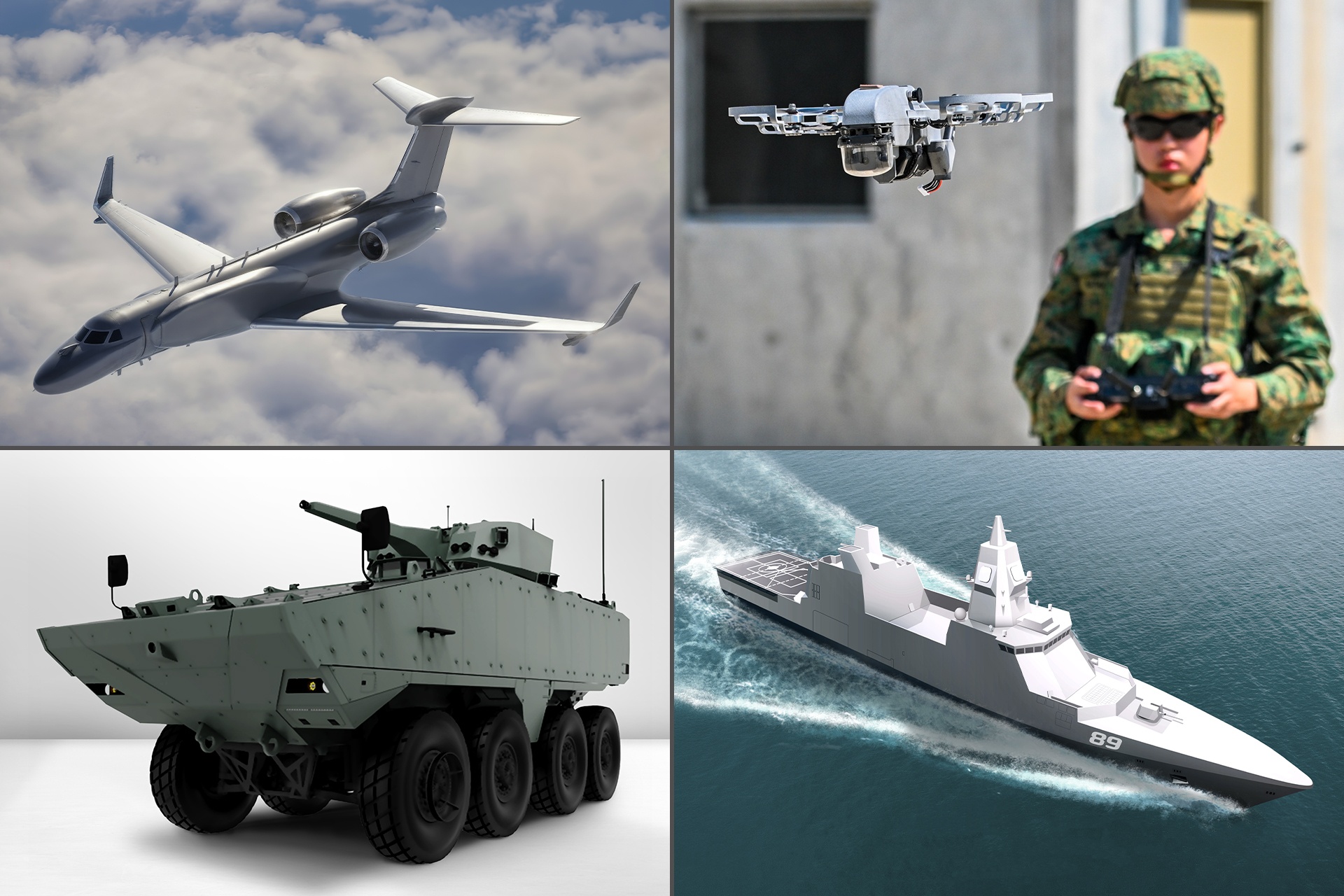OPS & TRAINING
WORKING BEHIND BARS
22 Sep 2010
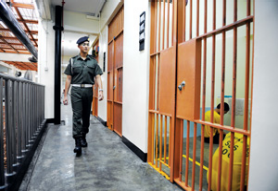
In this second of our six-part series on lesser-known vocations, PIONEER puts the spotlight on the multiple roles Military Policemen (MPs) assume in the Singapore Armed Forces Detention Barracks (SAFDB).
If you think you deal with difficult people in the workplace, take heart in knowing that MPs in SAFDB have it much harder.
From the simply defiant to those who exhibit violent and psychotic behaviour, these are just some examples of the types of people they come into contact with every day.
Thankfully, the MPs are well trained for the job. According to Commandant SAFDB, Senior Lieutenant Colonel (SLTC) Lim Hock Siong, they are trained in a variety of skills that include the management and rehabilitation of detainees, as well as control and restraint techniques.
At SAFDB, MPs are divided into three main groups: The Detention Platoon, which manages the daily routine, safety and well-being of the detainees; the Rehabilitation and Discipline Section, which coordinates rehabilitation programmes and conducts deterrence regime (physical training and military discipline activities); and the Security Platoon, which provides security and surveillance within SAFDB and escorts detainees on the move.
Said SLTC Lim: "Given our unique environment where we have detainees of different profiles and behaviours, we need MPs who are professional in ensuring the secure incarceration and well-being of the detainees. In addition, the MPs must be firm, fair and caring in their management of the detainees.
"Only then can they help to imbue the correct values and transform detainees through the various rehabilitation programmes at SAFDB."
Not just guards
While the physical size of an MP in SAFDB does play a role in sending a deterrence message to detainees, Corporal First Class (CFC) Khoo Yu from the Security Platoon challenged the mindset that his job is all brawn.
"It's both mental and physical. For example, when we escort detainees out of SAFDB to places such as the courthouses, we need to plan our entire operation... and ensure that every detail, such as security measures or adjustment due to traffic changes, is adequately covered.
"And when detainees are uncooperative while under escort, that poses a problem too, and we have to handle them appropriately and think of ways to calm them down."
Corporal Muhammad Ali Taskhiri from the Detention Platoon added: "One of the hardest things about my job is having to make important decisions on the spot. In situations where detainees get into fights, I have to quickly think about how I can stop the fight and prevent further incidents."
Different hats needed
For Master Sergeant (MSG) Sekar s/o Sivalingam, a Senior Regime Specialist in the Rehabilitation and Discipline Section, being an MP in SAFDB requires him to play several different roles.
He explained: "In front of detainees, I have to be a disciplinarian. I have to be firm, and I will not smile, so that detainees know I am not someone they can mess with.
"But at times, I face situations where detainees approach me with their problems, and I must play the role of a counsellor, or even a mentor to them, and listen to their problems...It's really a challenge to balance the multiple roles we play here.
Detention Platoon Commander 1st Warrant Officer Christopher Quah agreed that different styles of management are required in his job, and at times, there is a need to temper discipline with compassion.
"For example, we cannot use stick with stick, meaning that if they're violent, we cannot counter them with violence alone. We need to show compassion as well.
"After interacting with detainees and listening to their problems, I find that many of them come from dysfunctional families, and I counsel them by telling them that they can be the ones who can change and make the difference."
Passion to help
For these MPs, sharing with their friends about their job at SAFDB tends to draw curiosity, and misconceptions.
MSG Sekar said: "A lot of my friends think that it must be depressing to work in a prison. While we're surrounded by bars and barbed wires, it's the mindset, and not the physical surroundings of our workplace that determines our happiness."
MPs practising their control and restraint techniques on a simulated detainee, so that they are able to handle detainees who get violent.
So what motivates these MPs?
"Passion," said 2nd Sergeant (2SG) Soh Wee Kiat, from the Rehabilitation and Discipline Section. "A passion to make a difference to the lives of my fellow servicemen.
"There are times when detainees don't show positive attitudes in our physical regime training, and even parents misunderstand our intentions. But we can understand all that, and we still do our utmost to create an appropriate environment to rehabilitate our servicemen."
He recalled an incident where he saw his efforts in helping to rehabilitate detainees pay off: "I once met an ex-detainee on the street, and he was with his wife and two kids. I was really impressed by how he had changed from being a notorious gangster to finally settling down in life to become a father."
Probably articulating the sentiments of all the MPs in SAFDB, CFC Khoo said: "The biggest reward for us is to see detainees complete their regime, get out of DB and never come back again."
ALSO READ IN OPS & TRAINING
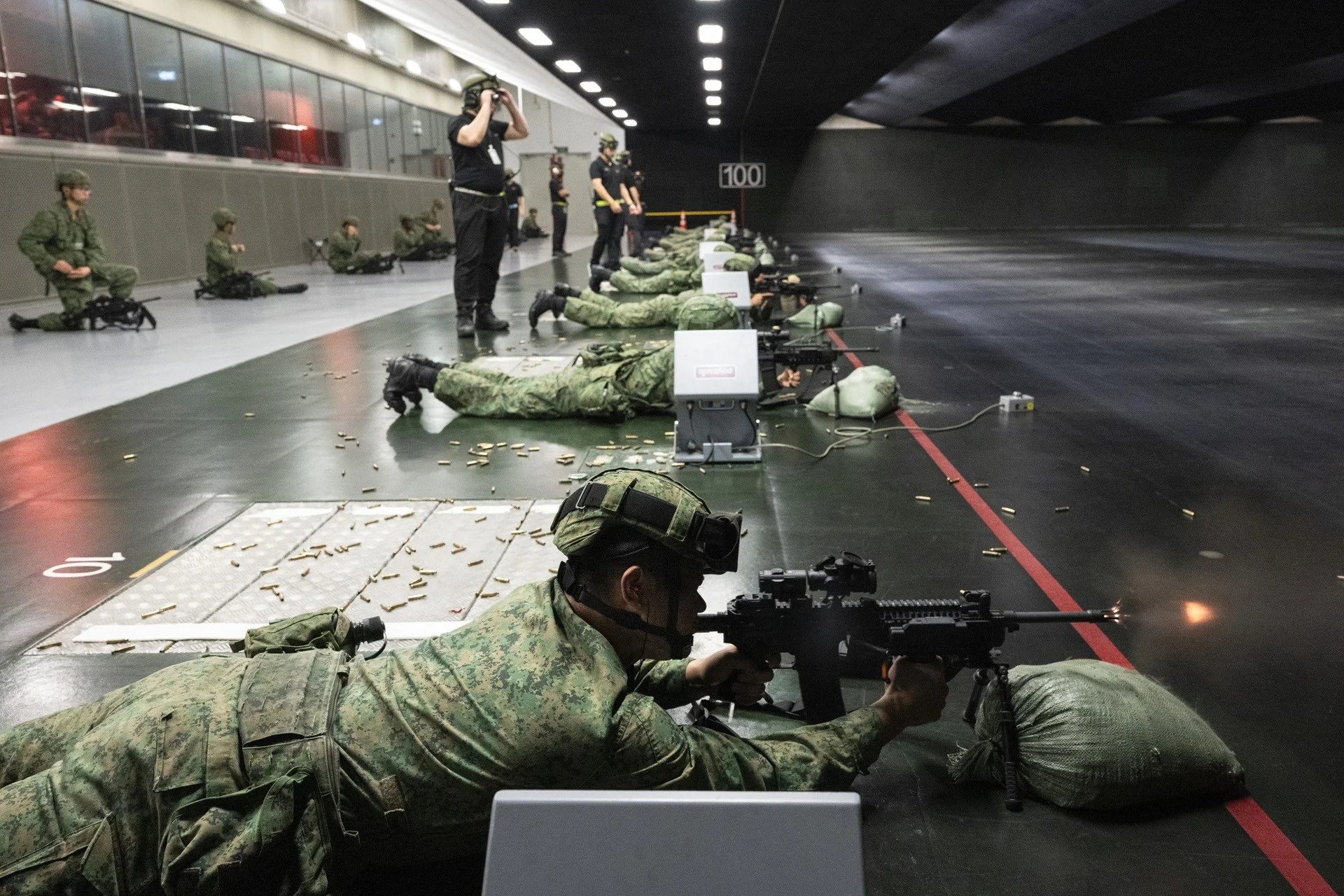
New firing range complex at Bedok Camp; Medical Classification System to be redesigned
27 Feb 2026
To train soldiers for a more complex environment, the SAF will build a new Multi-Mission Range Complex, as well as introduce opportunities for national servicemen to take on new roles, and more ways to volunteer.
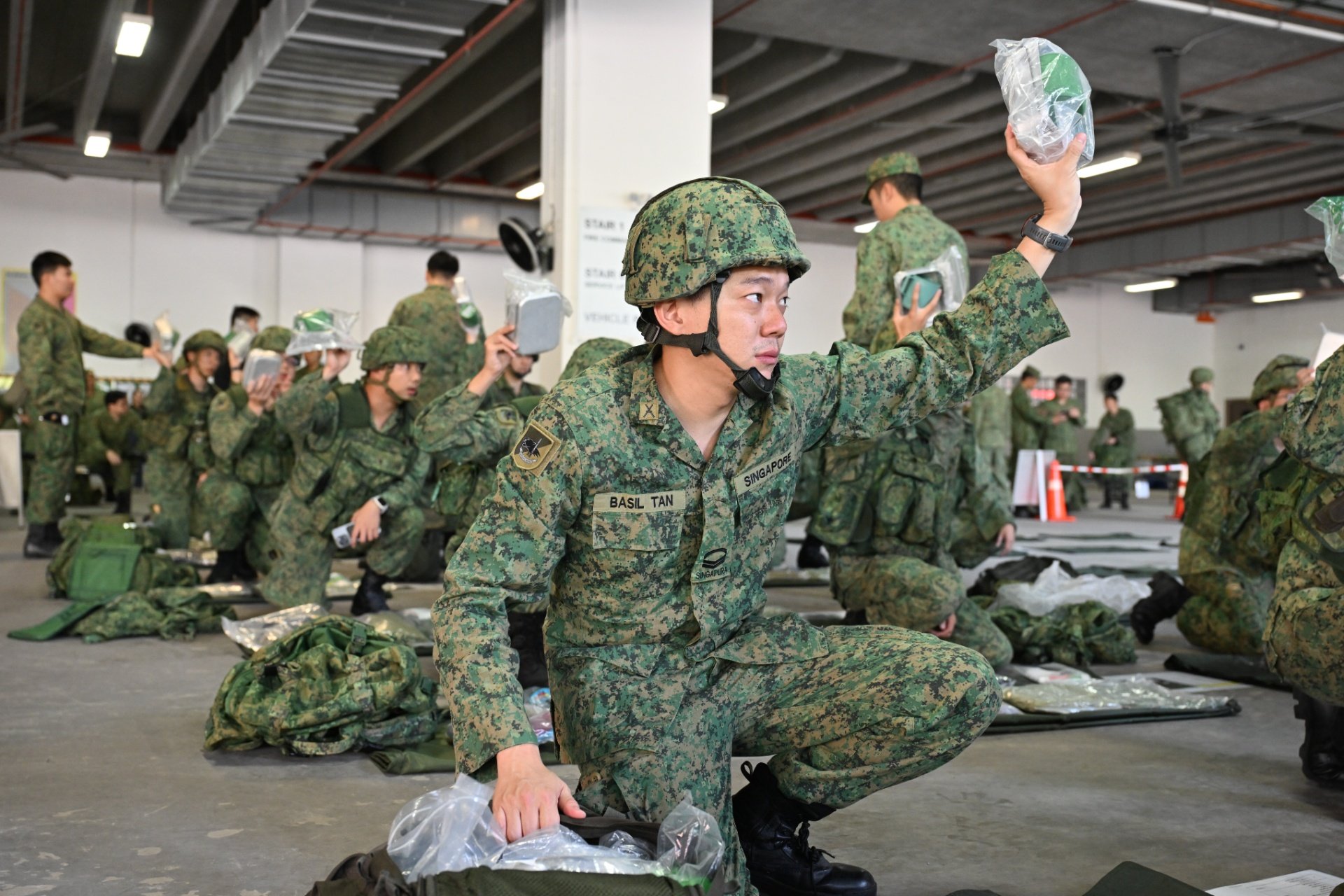
Reaffirming their commitment to defence
07 Feb 2026
Over 3,000 NSmen displayed their commitment to Singapore’s defence at a MOBEX in Selarang Camp.
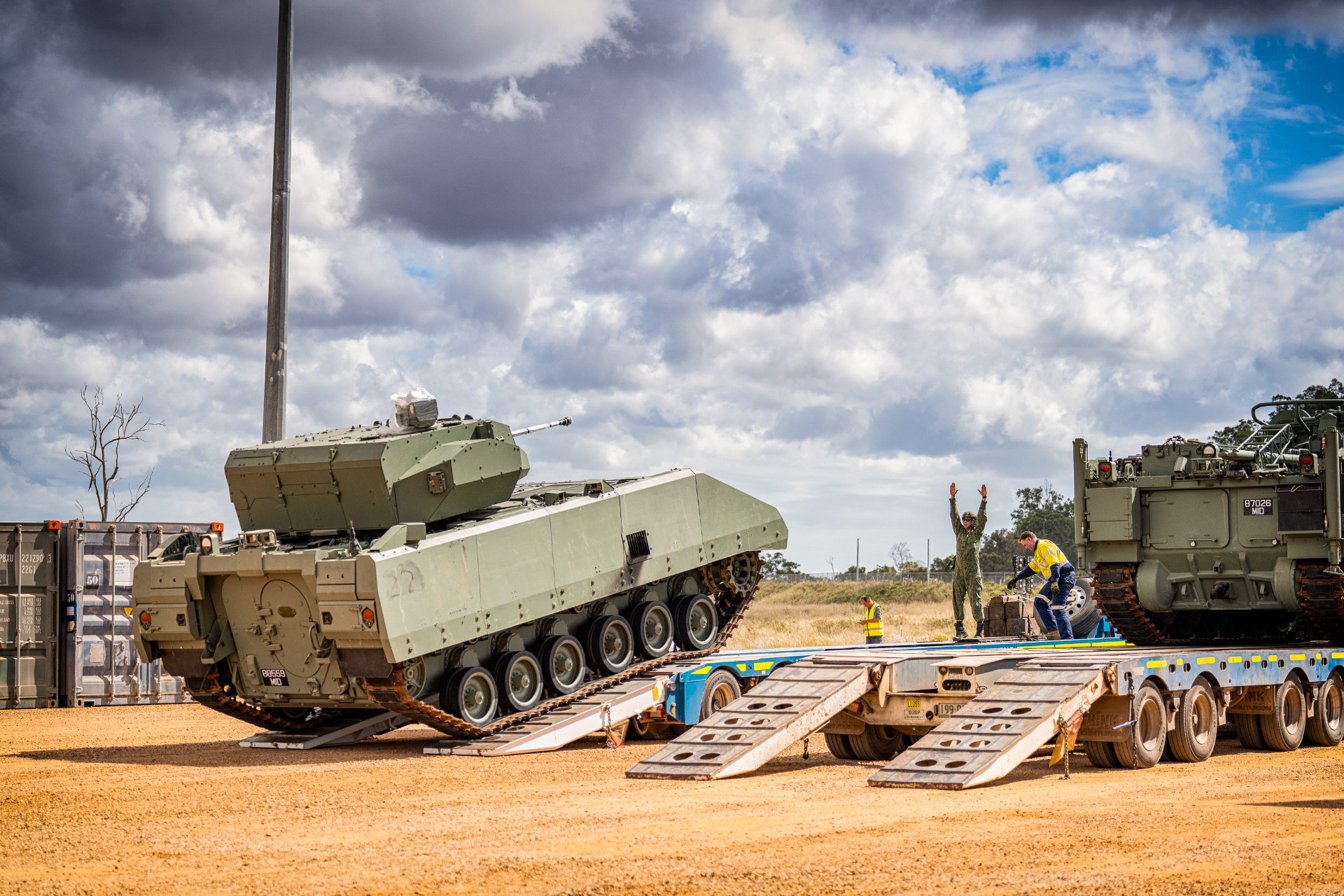
First in, last out at Ex Wallaby 2025
06 Nov 2025
Meet the teams who toil behind the scenes to enable the smooth conduct of the SAF’s biggest unilateral overseas exercise.


